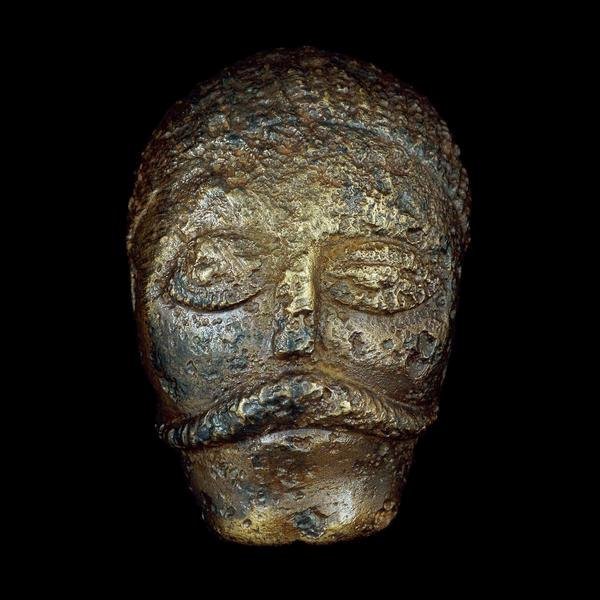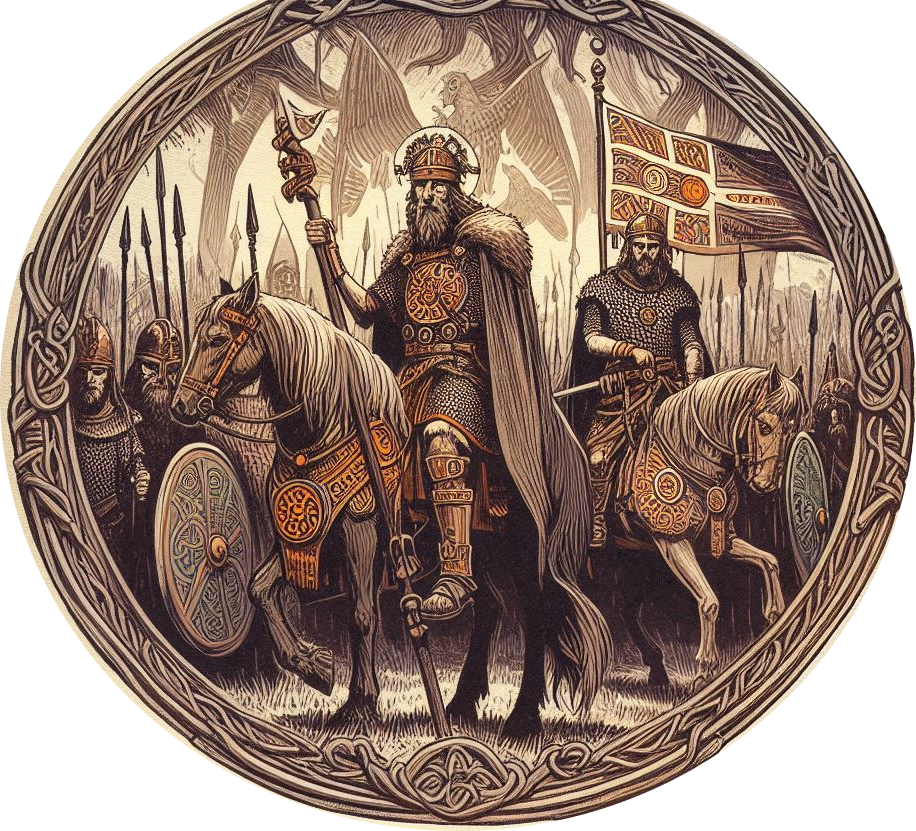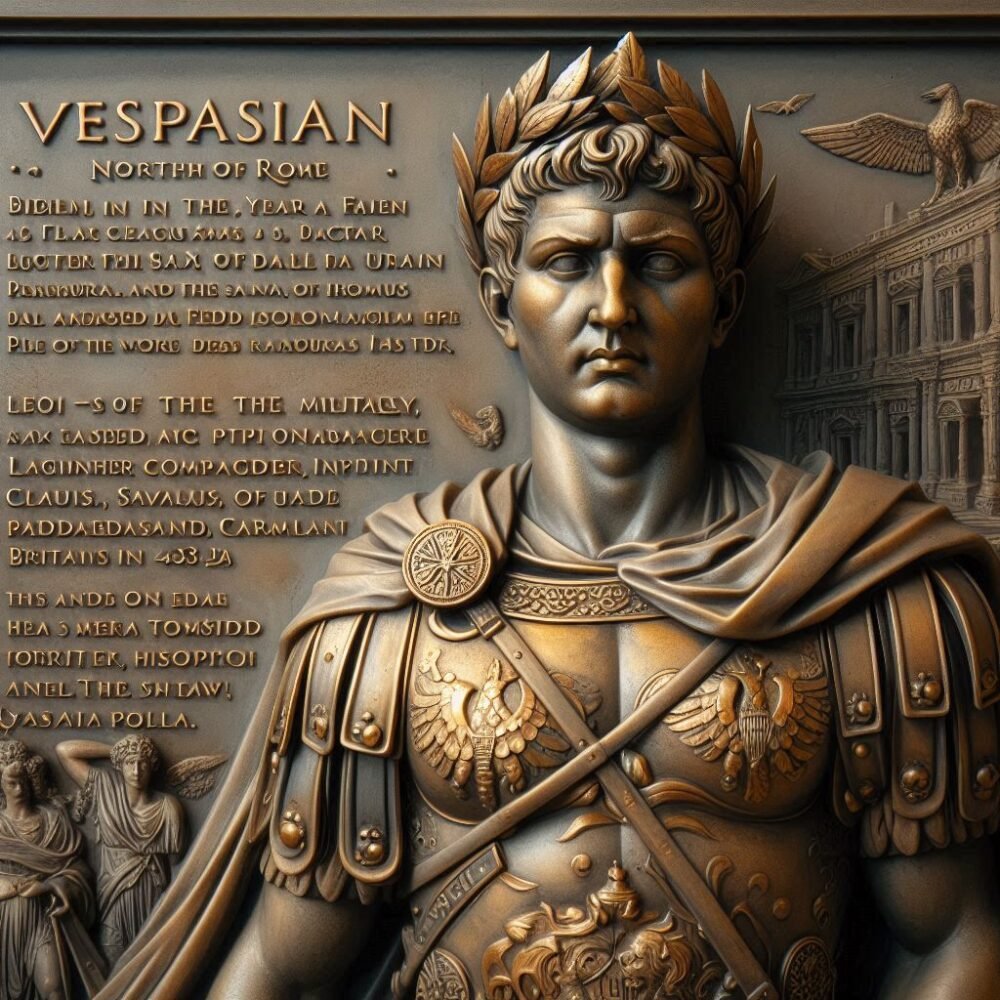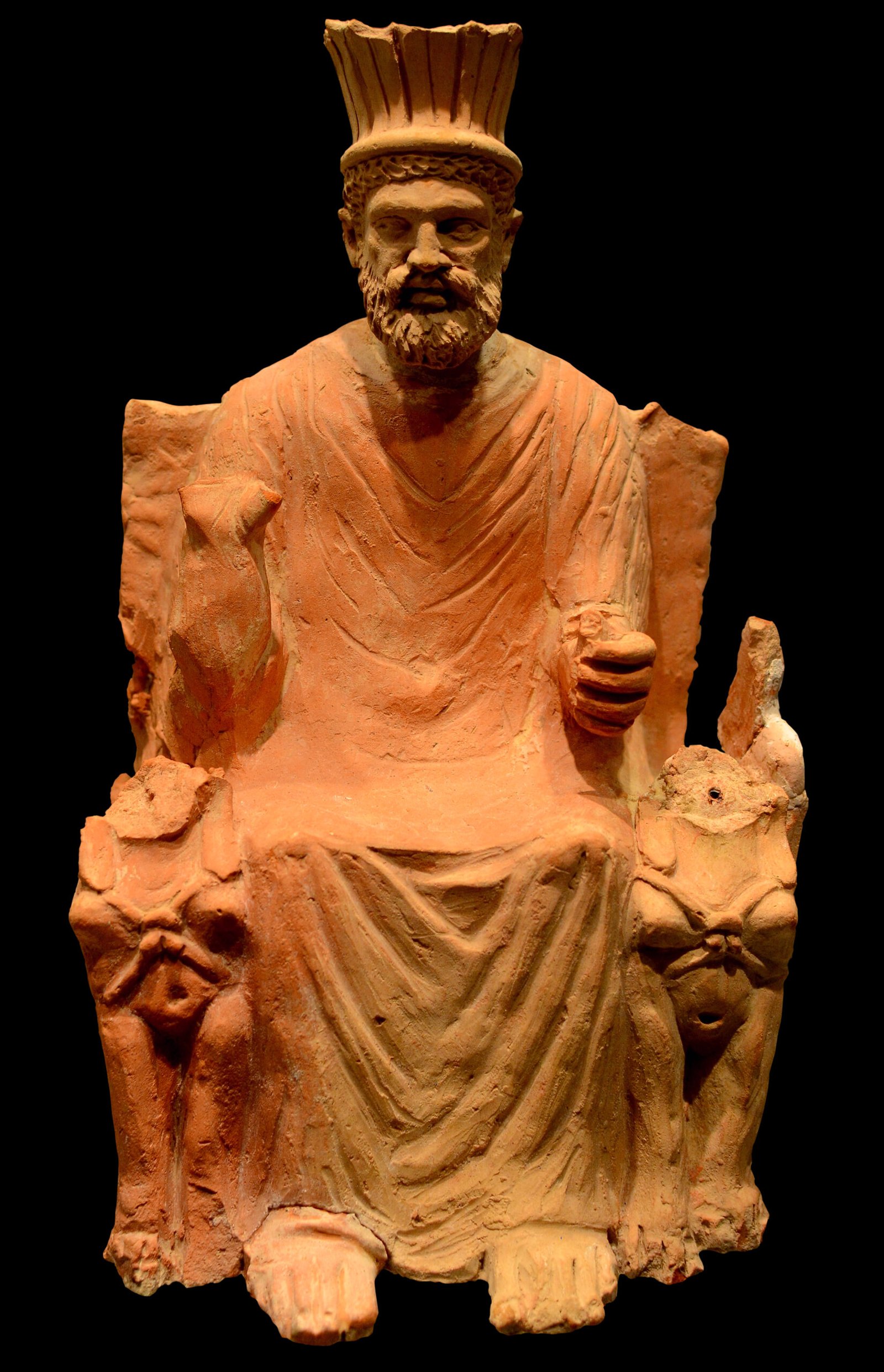
Cartimandua
Queen of the Brigantes
Many people know the story of Queen Boudica’s rebellion against the Romans. Fewer people realise that Yorkshire, and much of northern Britain was also ruled by a queen, the most powerful ruler in Britain in fact. Her name was Cartimandua (c. 43 to c. 70 AD), and she ruled over an association of clans and tribes called the Brigantes. At the time of the Roman conquest of Britain, Cartimandua and her Prince Regent Venutius, ruled over an area covering all of current Yorkshire, at its south-western corner was Chester, its southern boundary was Leicester, the boundary then moved east to Newark and Doncaster. From Doncaster the Brigantian territory ran through York and on to Scarborough, then up to Newcastle and the northern frontier ran over to Carlisle. Venutius was a Prince of the Carvetii tribe, who occupied modern-day Cumbria. It is likely that the marriage between Venutius and Cartimandua brought about the inclusion of the Carvetii into the Brigantes federation.
Before their conquest, Rome had established many trade links with the British tribes and had understood the importance of the Brigantes to their plans, which at the time were for a partial annexation of Britain, Brigantia as an ally would ensure a peaceful northern border from the coast to coast. After their invasion in AD 43, and the subsequent rout of Caratacus’ army, the Roman’s agreed a treaty with Cartimandua and the other defeated royal families of Britain. The outcome was to make Brigantia a client state of Rome and therefore part of the Roman Empire. It is also likely that Venutius fought alongside the Romans in the suppression of any dissenting British tribes between 43 and 47 AD.
When the Romans arrived in the first century, they found the vast Brigantian tribal federation in the neck of Britain organised under Queen Cartimandua whose seat is unknown but likely to be in the Leeds/Manchester/York triangle. Cartimandua’s husband was acknowledged as king, assuming the role of the Brigantian warlord. The Roman historian Tacitus (Annals 12.40, 2-7; Histories 3.45; Koch 1995:39-40) specifically acknowledges that it was Cartimandua, the living symbol of Brigantia, who held the ultimate power among the Brigantes and had an active role in choosing her husband/warlord. Indeed, it has been suggested that the Welsh word for king, brenin is derived from brigantinos meaning the consort of Brigantia.
Initially, Brigantia prospered as a client state and grew wealthy. However, dissent reared its head both inside and outside the kingdom. Internally, Venutius was not happy with Cartimandua’s increasingly open relationship with Vellocatus, his armour bearer. Externally, the Roman peace offered in AD 43 was proving to be more painful to the British population than expected. In particular, Rome had sworn to destroy the Druids, the main religious, educational and law giving order in Britain.
Around 47 AD, a rebellion in Brigantia distracts the Romans from their advance to Anglesey. This revolt could have been the first indications as to the extent relations had broken down with Venutius, a targeted strike to hurt Cartimandua, as well as giving the pro-druid forces a chance to re-group. The rebellion was put down mercilessly, this was the second rebellion in Scapula’s territory entire tribal units will have been slain.
Thus began the feud in the Royal household of Brigantia, Venutius no doubt set to brooding, plotting how he could exact revenge on Cartimandua and Vellocatus
Cartimandua was greatly troubled by the outbreak of rebellion – she knew from recent experience that to survive she had to emulate King Cogidubnus in the south. His tribe fully embraced the Romans, and he had retained and enhanced his wealth. A leader who could not control her people was of no use to the Romans and plenty of enemies would take her place.
Elsewhere in Britain Caratacus, son of King Cunobelinus, after his defeat in the south-east had moved west and was the focus of the Celtic resistance based in Wales. In 50 AD, Caratacus was defeated in North Wales (very close to the power centre of the Druids – Anglesey) and travelled to Cartimandua to ask for protection and help with the war with Rome. This indicates that he was reasonably confident that Cartimandua would be willing to listen to him and there are two explanations; Cartimandua was a relative; Cartimandua or Venutius had let it be known that they were having second thoughts about the relationship with Rome. In any event, Caratacus’ confidence was unfounded and Cartimandua had him and those that travelled with them handed over to the Romans. Tacitus credited Cartimandua’s capture of Caratacus as “having secured the most important component of Emperor Claudius’ triumph”. It may have been this incident which finally caused the break between Venutius and Cartimandua, not long afterwards, Venutius started building a hill fort at Stanwick, which was eventually to become the site of the largest battle with Rome in British history.
After 51 AD, Cartimandua formally divorced Venutius and took as her husband Vellocatus (“better in battle”). However, this was no simple divorce for, by this action, her new husband became king. Tacitus recorded that the divorce and remarriage prompted a civil war among the Brigantes because the majority of the people preferred Venutius as king. Yet, Cartimandua’s will prevailed, “favouring the illegitimate husband [Vellocatus] were the queen’s libido and her ferocious temper” (Tacitus).
Emboldened by this show of loyalty by the Brigantes Venutius gathered strength at Stanwick, welcoming all the disenchanted to join his band, his sole aim to get back at Cartimandua, perhaps he also saw a future as a British hero, like his old friend Caratacus. Gradually Venutius formed alliances and gained control of Cartimandua’s most northern tribes. Losses that she carefully hid from the Romans, knowing that any intervention from them could see her last days on the throne.
Cartimandua was capable of such behaviour because she was a living representative of the goddess of sovereignty, Brigantia. According to Anne Ross, “Cartimandua’s powerful role in Roman times may suggest that society recognised the power of the goddess by mirroring her authority in its own temporal ruler. . . . This particular goddess may have been as much concerned with the actual tribal hegemony as with the territory” (Ross 1996:456). According to Patrick Ford, horses were intimately associated with goddesses of sovereignty (Ford 1977: 8-10). Cartimandua may have inherited this role since her name literally means, “sleek pony” (Ross 1996:449).
Although Venutius had previously fought on the side of the Romans, he now turned to the anti-Roman faction among the Brigantes for support and ignited a civil war. Cartimandua took several of his family hostage, indicating she had military success (hostages were normally taken by the victors to assure future peace and the payment of tributes). In response Venutius attacked and laid siege to her capital. Eventually, Cartimandua was rescued by Roman cohorts after several attempts and with notable losses.
By AD 60 Cartimandua had lost control of a significant portion of her territory to her ex-husband Venutius, strangely this would not have happened without Rome’s presence, since the Druids could no longer enforce her rights as sovereign. It is likely that Venutius’ southern border ran from Blackburn to Ripon through to Hartlepool. Furthermore, he had strengthened relationships with anti-roman tribes of Northern Britain; Novantae and Selgovae. To better defend Cartimandua the Romans pushed northwards with their front line and had set a new line of forts running from Northwich through Brough on Noe to the Humber. The war continued for the next eight years, Venutius’ policy of only attacking Romans in Brigantian territory, along with Nero’s increasing unwillingness to extend his forces in Britain, allowed Venutius to strengthen his grip on Brigantia.
Some time among the Brigantes until Venutius was on the eve of victory. With Cartimandua in a compromised position, the Romans intervened to save their ally several times. Roman intervention saved Cartimandua but eventually, her actions gave the Romans an excuse to conquer Brigantia. The Romans could not tolerate the long Brigantian border in the hands of a hostile king who could not only attack the south himself but also harbour Roman enemies from the south. To the Brigantian’s, the fault for their conquest by the Romans would have fallen squarely on the shoulders of Cartimandua and the war between her husbands.
In AD 68, dissent caused by Nero’s apparent favouring of Greece over Rome spread to Gaul, and C. julius Vindex, a Romanized Gaul, the Governor of Gallia Lugdunensis began a revolt against Nero and was able to raise 100,000 men from several Gallic tribes, and it has been suggested that Venutius may have supported the movement (Venutius’ camp at Stanwick seems well supplied with Roman aid).
Later, in AD69 when Emperor Nero died, a struggle broke out among the powerful men of the Roman Empire to decide who would be his successor. This left a power vacuum which Venutius exploited to stage a rebellion on the side of one of the opposing Roman factions, which resulted in Cartimandua again needing to be evacuated to safe territory. The new Emperor, however, now saw Venutius and the rest of Gallic (Celtic) Britain a legitimate enemy and Brigantia was annexed as part of the Roman thrust northwards between AD 70 and 73.
Cartimandua is not heard of after AD70.
Classical travel writers were rarely interested in the lives of women, and so lesbianism gets little mention (though it probably existed on an equal footing with male homosexual activity.) However, there is one interesting insight into the lives of women from the Brigantes (and most likely many other) tribes. Caesar’s wife is reported, by Strabo, as having a conversation with a noblewoman of the Brigantes. Caesar’s wife upbraids the woman for the shockingly overt way in which British women take lovers and flaunt their conquests. The aristocrat responds acidly by pointing out that while Roman women consort secretly with the very worst of men, British women give themselves openly to only the very best of men! Rome appears to have shared the unusual approach of the Spartans in that the true disgrace lies not in the act, but in being lazy enough to get caught.
Other information about Cartimandua
A Mistress, Three Widows and a Priestess: the rise of women leaders on the Roman frontiers Article by Emily Roche.



























